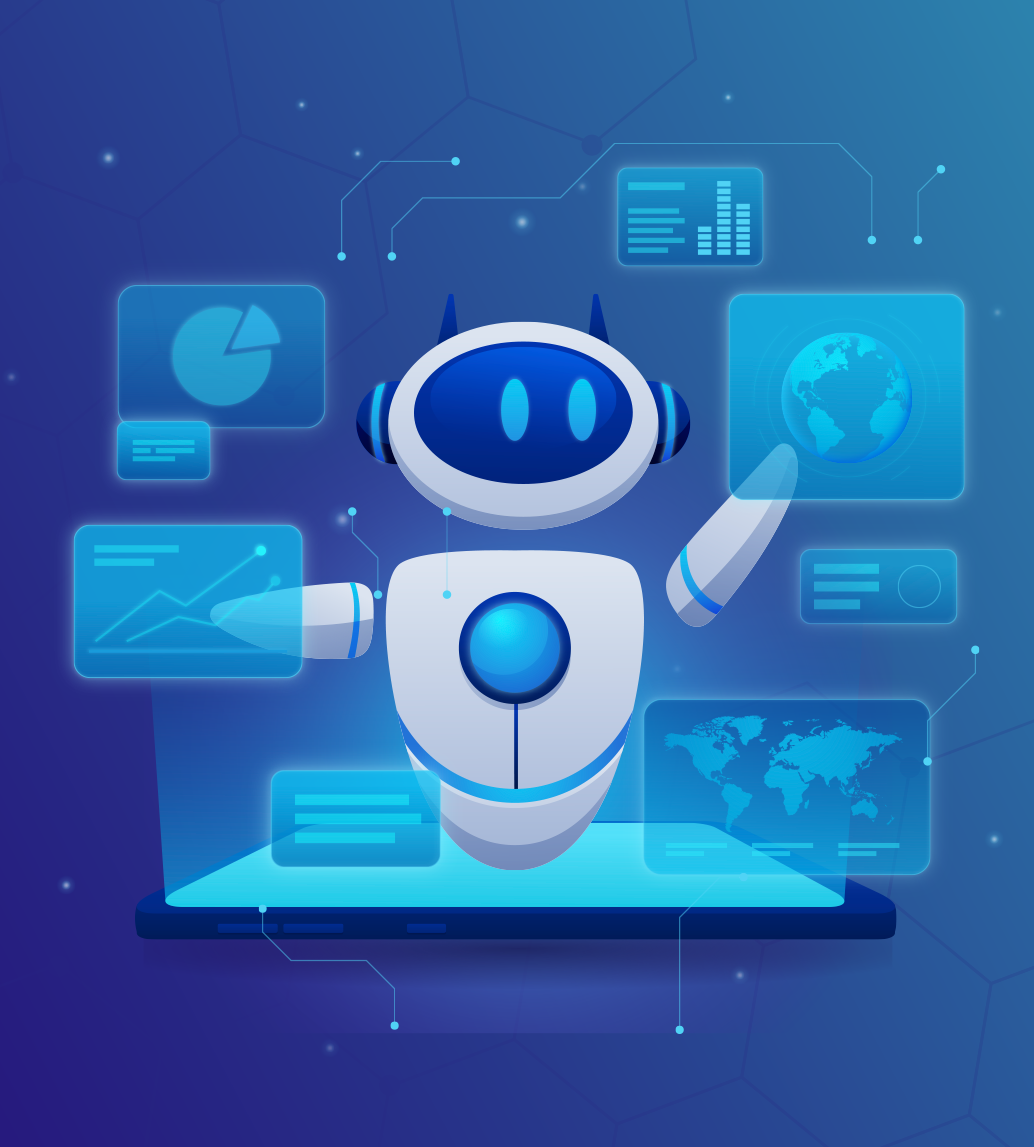AI Revolution in 2025: Developments Across All Industry Sectors

In 2025, artificial intelligence (AI) has become a key pillar of digital transformation in Indonesia. Various industry sectors are experiencing significant revolutions thanks to the adoption of this technology, ranging from healthcare to manufacturing.
The development of AI is expanding and being applied in various aspects of life. Beyond industry, daily life is increasingly reliant on AI. Its popularity is also driven by science fiction films showcasing the sophistication of this technology, making people more interested in understanding and adopting it.
The Role of AI in the Healthcare Sector
The healthcare sector is one of the most affected by the AI revolution. This technology can diagnose diseases faster, support the selection of appropriate treatment methods, and predict individual health risks more accurately.
By analyzing patient data in-depth, AI enables evidence-based medical decision-making. It also plays a crucial role in early disease detection and more effective epidemic management.
"Reports indicate that the AI market in the healthcare sector is projected to reach $6.6 billion by 2025. This technology will be used in medical imaging, care management, and the development of new therapies." - Frost & Sullivan
Additionally, AI is being applied in medical chatbots and virtual assistants to enhance healthcare accessibility, particularly in areas with limited medical personnel.
AI Developments in Business and Enterprise
At the corporate level, AI usage strategies will increasingly focus on business value and ROI (Return on Investment). Companies are expected to establish AI committees led by a Chief AI Officer to ensure AI implementation delivers tangible impacts.
"2025 will be the year when enterprise AI truly evolves and enters full production." - John Roese, Chief AI Officer, Dell Technologies
AI will also impact the job market, requiring organizations to invest in improving AI literacy among their workforce. As AI handles routine tasks, human roles will shift towards strategic thinking, creative problem-solving, and complex decision-making.
"AI is creating new high-level jobs and acting as a catalyst for investments in infrastructure, significantly impacting job creation." - John Roese, Chief AI Officer, Dell Technologies
Read This Article: Peran Inovatif AI dalam Evolusi Cloud Computing
Industrial Revolution with IoT and AI
Two major innovations transforming industries are the Internet of Things (IoT) and Artificial Intelligence (AI). By 2025, these technologies will be more integrated, revolutionizing industrial operations and data-driven decision-making.
IoT and AI Innovations That Will Dominate:
- Manufacturing Production Automation\
IoT sensors monitor machines in real-time, while AI analyzes data to predict maintenance and optimize production. - Autonomous Vehicles with Auto-Pilot\
The integration of IoT and AI enables vehicles to communicate with road infrastructure and other vehicles, improving transportation safety and efficiency. - Smart Cities\
IoT monitors traffic, energy usage, and city infrastructure, while AI optimizes public services to enhance residents' quality of life. - Business Decision-Making\
Big data from IoT is processed with AI to provide strategic insights, improve business efficiency, and unlock new innovation opportunities.
Read this Article: The Role of AI in Cloud Computing
The Application of Generative AI in Business
Generative AI is becoming a key pillar in business transformation, assisting in fraud detection, security enhancement, software development, and content automation. This technology enables companies to improve operational efficiency and customer service.
Benefits of Generative AI in Business:
- Reducing Operational Costs
AI minimizes reliance on manual tasks, allowing budget allocation to other business strategies. - Enhancing Productivity & Saving Time
Teams can work more efficiently, focusing more on strategic decision-making. - Unlocking Insights and Innovation
AI aids in creating product concepts, designs, and marketing strategies. - Personalizing Customer Experience
AI understands customer needs and delivers more relevant services.
Generative AI has now become a fundamental component of modern business strategies, creating significant added value for companies.
Support for AI Development in Indonesia
Indonesia has demonstrated a strong commitment to AI development. Companies like Indosat Ooredoo Hutchison and GoTo Gojek Tokopedia have launched Sahabat-AI, a large language model supporting AI services in Indonesian and regional languages. This initiative helps AI understand local cultural contexts.
Additionally, Nvidia plans to invest in Indonesia by establishing an AI school in Central Java, aiming to enhance human resource capacity in artificial intelligence.
Challenges and Opportunities for AI in Indonesia
Despite rapid AI development in Indonesia, several challenges remain:
- Independent AI Development
Indonesia still relies on foreign AI technology. - AI R&D Funding
Greater investment is needed in AI research at universities and national research institutions. - Multi-Sector Collaboration
Synergy between the government, private sector, and academia is key to accelerating AI adoption.
With the right strategies, Indonesia has the potential to become an AI innovation hub in Asia, on par with other developed nations. The AI revolution not only enhances efficiency and productivity but also opens new opportunities for economic growth and societal well-being.